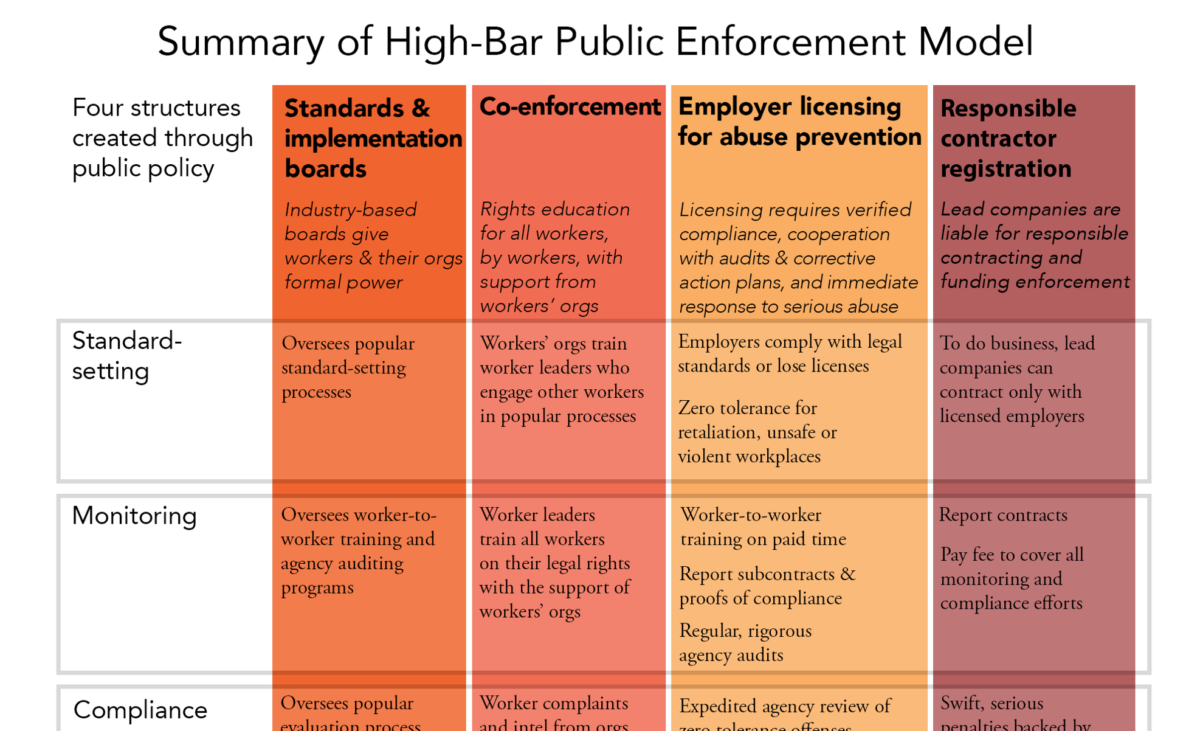Worker-Powered Enforcement: Proposals for building & scaling measurably effective enforcement models through public policy

Effective enforcement of basic rights, especially from illegal retaliation in all its forms, is a critical piece of what we need to build back up a large-scale labor movement in this country. But public enforcement has consistently failed to protect the most vulnerable workers most in need of our support. The only measurably effective enforcement programs right now are those built out of private agreements.
As we build political power, what other tools can we create through policy that extend our capacity to support worker solidarity?
We’ve explored this question in a new white paper that draws on conversations with worker centers on the frontlines of local policy innovations and, in particular, lessons we’ve learned from the WSR model. In it, we build off of established progressive policy ideas, like co-enforcement, standards boards, employer licensing, and responsible contracting laws. But given that nowhere has public policy fully embraced the principles that make private enforcement programs successful, we’ve adapted ideas that largely only exist in private programs into a policy framework.
We believe, based on our experience with these workplace and legislative campaigns, that it is possible to leverage policy to grow these effective, worker-led private enforcement models. And, inspired by these private models, we can build a public enforcement system that not only delivers timely relief from retaliation but actually prevents it. These tactics can unlock new terrain for workplace organizing and build the multiracial labor movement we need for the 21st Century.
Additional Resources
 P4DR-WPE-Policy-Brief-5-22
P4DR-WPE-Policy-Brief-5-22
